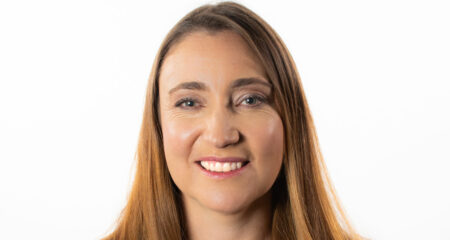
The group that is least likely to scupper the possible acquisition of Advtech by its fast growing competitor Curro is the Competition Commission. Combined, the two companies are far smaller in the private schools arena than one might think.
In 2013, the number of pupils enrolled in independent schools was 513 804, versus 11,9m enrolled in the state sector. There are about 1 600 independent schools compared to roughly 24 000 state schools.
Within the independent schools sector, Curro had 36 000 pupils across 42 campuses at the end of 2014, while AdvTech had about 14 000 pupils at 75 schools. Collectively, they educate less than 10% of independent learners between kindergarten and grade 12.
It appears that Advtech management has cautiously welcomed Curro’s opportunistic move. Its interim CEO, Frank Thompson, responded “definitely maybe” in response to the question: “Does AdvTech want to be acquired at this stage?”
Of course the offer, if it materialises as a formal proposal, will have to be scrutinised by the Advtech board and put to shareholders for their approval.
Although Curro’s CEO Chris van der Merwe is not commenting at this point, it seems that Curro took advantage of the fact that Advtech is currently without a full-time CEO following the resignation of Leslie Maasdorp. This removes the ego element from any possible takeover talks.
Advtech, whose market capitalisation is R5,2bn, also lacks the support of a backer with deep pockets. Curro, with a market cap of R12bn, is backed by PSG, whose market cap is R43bn. The latter has repeatedly stated that its intention is to invest in the companies it currently owns, rather than expand its portfolio horizontally.
Curro is also possibly taking advantage of the fact that Advtech’s quiet growth strategy has seen it invest about R2,5bn into the company over the past six years, while it has funded a further R2bn worth of acquisitions with debt and equity.
The share has rerated, moving from R5,65 three years ago to R11,46 currently, but there are many who believe it has further to go as the full impact of the investment and acquisitions start to reflect in the numbers.
For many Advtech investors, 2014 was the base year from which future comparisons will be made. Results for the year to December 2014 reflected a 41% increase in 2015 enrolments, with headline earnings up 7% on revenue up 9%. These figures were negatively affected by 2014’s acquisition spree, which pushed up debt, interest charges and one-off charges.
A recent trading statement has revealed that the company expects headline earnings per share for the six months ended 30 June 2015 to be between 24,1c/share and 26,1c/share, which is a gain of between 20% and 30% on the comparative period.
Contrary to some views, this growth is not thanks to the acquisitions, whose positive impact on revenue and operating profit will be offset by interest costs and the increase in amortisation and depreciation. This earnings growth is being generated by an improved organic performance. The benefit of the acquisitions will most likely be felt from 2016.
Aside from acquisitions, Advtech has spent the last few years investing time and resources into the business itself. In particular, it has poured substantial sums into its IT infrastructure, specifically its student administration system, its curriculum management system and its teacher management system, all of which are scalable.
Management has also tackled trouble spots such as its tertiary division.
All of a sudden the company is looking mighty attractive and just a little bit vulnerable.
In the meantime, Curro has been growing at a lickety click and is well ahead of its prelisting growth targets. It plans to have 80 schools by 2020 and with this in mind has been actively securing suitable sites. Despite repeated comments that the market is big enough for everyone, it is possible that Advtech is starting to encroach on its space as the latter also seeks out acquisitions and new sites for schools development. It is also moving into the high-growth arena of lower cost schools targeted by Curro.
“This looks like a strategic move by Curro to control the market,” says Lindsay Roots, equity analyst with Nedbank Private Wealth. It is getting harder to find sites and with South Africa’s poor economic growth it is likely that fewer urban developments will happen, he says. “It is possible that come 2020 both companies will find it difficult to grow at the rates they have been growing. But with the companies working together — rather than competing — it is possible they could continue to find new sites for development.”
He believes the companies assets could be complementary. For instance, Advtech has a well developed tertiary division which has potential for further growth. Although it is changing, the bulk of Advtech’s schools portfolio (Crawford and Trinity House) is targeted at upper income earners. Curro operates in a lower fee space. Even the Traditional Curro schools, their most elite, are more affordable than Advtech’s.
Both companies have teacher training facilities, which is important as far as the department of higher education is concerned. And both are investing in technology and platforms that facilitate distance education. In this regard, PSG owns Impak, the home schooling education provider. And through its Maravest acquisition, AdvTech owns Maramedia, which designs and distributes digital content for home schooling. Advtech also has a 40% stake in Star Schools, which provides online teaching facilities.
At the end of the day, whether the deal goes ahead will depend on multiple factors, including of course, the price that is offered.
Advtech might be attractive, but one should not forget that is will not be a merger of equals. Curro is the aggressor.
- This column was first published on Moneyweb and is republished here with permission




